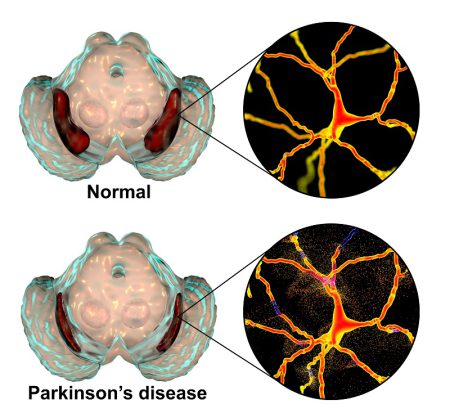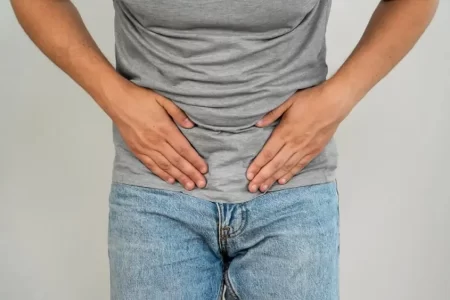How Does Wrong Diagnosis Worsen Cystitis in Women?
- Updated on: Jun 29, 2024
- 4 min Read
- Published on Dec 1, 2020

Cystitis is a condition characterized by inflammation in the lining of the bladder. The exact cause of the disease is still unknown. However, it is suggested that it could be due to bacterial infection through the urethra. In some cases, bladder inflammation may also occur due to medicines and hygiene products. Cystitis can occur in both men and women, although it is commonly found in females.
What Is Misdiagnosis and How Cystitis Is Misdiagnosed in Women?
Misdiagnosis can be defined as a condition in which a patient is informed that he/she has a particular disease or illness when, in reality, he/she has a different one. Since cystitis is mostly caused due to some other conditions, its diagnosis is challenging and requires the diagnosis of other underlying conditions for treatment. Cystitis can be misdiagnosed with the following diseases.
Overactive Bladder
Overactive bladder and cystitis are often confused. One of the common symptoms between cystitis and overactive bladder is an urgency to urinate. Overactive bladder is a condition caused due to involuntary contraction of the detrusor muscle in the bladder wall, which is normally under nervous control. This disease is caused due to nervous and muscular problems within the bladder. Patients with an overactive bladder usually do not experience frequent urination and pain of cystitis.
Vaginitis
Vaginitis is a condition characterized by a foul and smelly vaginal discharge along with pelvic pain. Sometimes the vaginitis symptoms are mistaken for cystitis.
Pudendal Neuralgia
Both pudendal neuroglia and cystitis share some common symptoms like pelvic pain, discomfort during sexual intercourse, and difficult urination. Pudendal neuralgia occurs due to nerve inflammation. This disease sometimes co-exists with cystitis.
Urinary Tract Infection(UTI)
Sometimes cystitis can be confused with urinary tract infections (UTI). UTIs develop due to bacterial infection within the urinary tract and leads to severe pain in the pelvic region. This pelvic pain due to UTI is sometimes misdiagnosed with cystitis. Cystitis may occur through bacterial infection, but it may also be due to other reasons like drug effects and hygiene products. Cystitis patients usually have a low level of bacteria in their urine, while high amounts of bacteria are found in UTI patients’ urine.
Chronic Pain
Chronic pain due to some other causes is also misdiagnosed with cystitis by healthcare professionals. Chronic pain may be recurrent and can last for weeks. This chronic pain can be treated with some painkillers and pain-relieving exercises. However, pain in cystitis needs to be cured well with antibiotics, painkillers, and exercises.
Vulvodynia
Vulvodynia is a condition characterized by painful vulvovaginal symptoms that can be easily misdiagnosed with cystitis. Symptoms like burning sensation while peeing and pelvic pain are often misdiagnosed with cystitis.
What Could Be the Effects of Misdiagnosis of Cystitis in Women?
If cystitis is misdiagnosed and left untreated, the symptoms will aggravate the same and also become painful. The common effects of misdiagnosis of cystitis in women may include:
- Dyspareunia ( pain during sexual intercourse)
- Pelvic pain
- Frequent urination with urgency
- Vaginal wall tenderness
- Burning sensation during urination
- Feeling sick and tired most of the time
- Prolonged back pain
- Fever and shivering
- Nausea and vomiting
- Foul smell in urine
- Blood in the urine (hematuria)
Misdiagnosis or improper diagnosis of cystitis may also lead to kidney infections (pyelonephritis). If cystitis is misdiagnosed with other diseases, prescribed unspecific antibiotics may have many side effects like hair loss and allergies.
How Can the Misdiagnosis of Cystitis Be Prevented?
Misdiagnosis of cystitis can be prevented by ruling out the other diseases that present the same symptoms as cystitis, including frequent urination with urgency and lower back pain similar to cystitis. The diseases often misdiagnosed with cystitis include overactive bladder, vulvodynia, urinary tract infections, chronic pain, and vaginitis. To avoid the misdiagnosis of cystitis, proper tests should be performed, which include the following:
Urine Test
A urine test is a preliminary test done for cystitis. This helps determine the basic cause of cystitis, whether it is a bacteria or some other cause. A urine culture is also performed to identify the specific antibiotics that can be used against cystitis.
Urodynamics
Urodynamics is done for complex cases of cystitis, and it prevents the chances of confusion or misdiagnosis. It involves a group of tests that are performed to determine the functioning of the lower urinary tract.
Cystoscopy
In this test, a thin tube with a camera is inserted through the urethra to determine the inflammation of the bladder and to know the exact cause of cystitis. This also helps in knowing the exact condition of the bladder.
FAQs
What Can Mimic Cystitis?
Cystitis is very easy to get misdiagnosed because there are other diseases that can mimic cystitis. The symptoms of these diseases are somehow similar to cystitis. These diseases are vaginitis, overactive bladder, chronic pelvic pain, urinary tract infections, pudendal neuralgia, and vulvodynia.
Can Cystitis Be Caused By Stress?
No, cystitis cannot be caused due to stress. If you have cystitis and you are doing some physical stress exercises, then the pain due to cystitis usually gets increased. The stressful exercises which cause pressure on the bladder, increases the pain in lower abdominal region and frequent urge to urinate.
What Happens if Cystitis Is Left Untreated?
If cystitis is left untreated or misdiagnosed, it can cause some serious health issues like kidney infection and can also make the symptoms of cystitis worse. The affected person will suffer from prolonged pelvic pain, serious discomfort while having sex, frequent need to urinate, uneasiness and tired or sick most of the time.
Will Antibiotics Help Cystitis?
Doctors usually prescribe antibiotics to treat cystitis. After taking antibiotics, you will start feeling better within three days. You need to follow the proper course of treatment, which doctor has recommended. The common antibiotics which are usually given by the doctors are nitroflurantoin, , trimethoprim-sulfamethoxazole (TMP-SMX), and fluoroquinolones.











